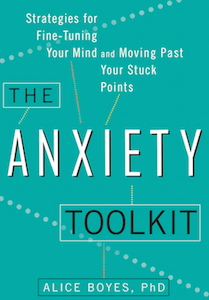Relationships
5 Hidden Benefits of Being in a Long-Term Relationship
Relationships are hard work. Fortunately, they're worth it.
Posted April 13, 2015

Long-term relationships involve effort and compromise. Feelings of love often wax and wane over the long haul, and need to be rekindled.
But they're worth the work.
Here are some of the personal benefits you can reap as a result of being in a committed and loving relationship.
1. You'll internalize your partner’s positive judgments of you.
Let’s say you’ve always been sensitive about your belly. However, your partner loves it. Over time, you’re likely to see it less negatively, as a result of your partner’s perception. (This effect might not bring about a complete transformation of your self-perception, but it should at least deliver a shift in the right direction.)
Of course, this principle also applies to inner qualities and skills, like your perceptions of your own likability, or your cooking—it applies to any domain in which your partner/spouse sees you more positively than you see yourself.
2. You can reap the benefits of "health behavior concordance."
Spouses and partners tend to pick up on each other’s health habits: If one visits the dentist once a year, the other spouse is more likely to start doing the same. This effect is part of the reason why it’s important to pick a conscientious mate.
But what if your spouse’s health behaviors are poor? Then you take the lead. If you make changes, your spouse will probably pick up on at least some of them, even if only subtly. Many of these processes occur outside of conscious effort or awareness. It's similar to when you hear someone singing a song, find yourself singing it later, and wonder why.
3. You'll feel a sense of attachment security.
When you feel a sense of a secure and permanent bond with a spouse or partner, you can try new things and know you’ve got a “soft place to fall” (or land) if what you try doesn’t work out.
Also, people in long-term relationships often go through crises together, such as health crises. From these experiences, you'll learn that your partner will be there for you—and this can reduce anxiety even for those who are prone to it.
4. You can savor shared memories.
Looking back on positive experiences you’ve shared with your partner is an effective strategy for personal (and relationship) happiness. Your shared memories might be a vacation, or something as simple as talking about how much a tree in your garden has grown since you first planted it.
5. You can correct each other’s thinking biases.
The more experiences you’ve shared, the more you learn what each other's thinking biases are. For example, your partner might rush into decisions when they’re feeling flustered or hungry—or tend to jump to negative conclusions prematurely.
When you know each other’s thinking style intimately, you can help each other “catch” when the other is falling into a characteristic pattern. In a loving long-term relationship, your present and futures are so intertwined that you can trust your partner has your best interests at heart.

Dr. Alice Boyes is author of The Anxiety Toolkit (Perigee/Penguin Random House, 2015).
Subscribe to her blog and receive the first chapter of the book free.


